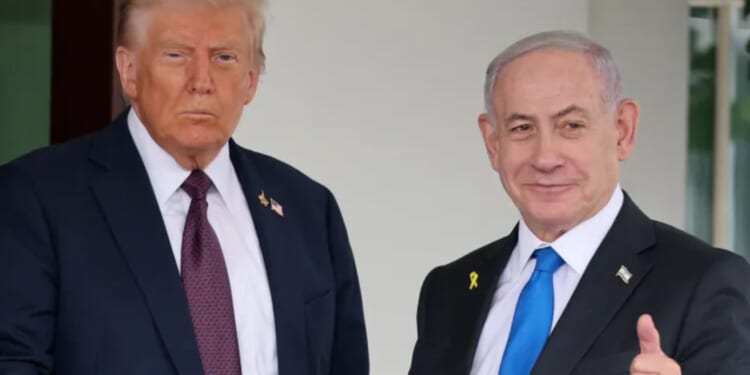In a stunning realignment of the global status quo, the Trump administration is pivoting away from India and cozying up with Pakistan.
Relations between the United States and Pakistan have been fraught ever since Osama bin Laden was discovered hiding in Abbottabad, Pakistan in 2011. American officials have consistently accused Pakistan of supporting terrorist groups and lending covert assistance to the Taliban, who retook Afghanistan in 2021.
“Under Biden, the Pakistan-U.S. relationship was really at the lowest ebb that we’ve seen in years,” says political commentator and editor Amber Shamsi in Karachi. “But with a new president … Pakistan has found a way back in.”
Why We Wrote This
The budding U.S.-Pakistan friendship marks a seismic diplomatic shift in South Asia. But lingering distrust toward the American security establishment will color their cooperation.
Indeed, a charm offensive by Pakistan’s military-backed regime is quickly bearing fruit in Washington. Much to the chagrin of the Indian government, President Donald Trump hosted Pakistan’s powerful army chief, Field Marshal Asim Munir, at a White House lunch in June. He has also repeated Islamabad’s claim that the Pakistan air force shot down five Indian aircraft during a brief conflict in May – claims India has not confirmed. And last week, Mr. Trump slapped a 50% tariff on Indian goods; Pakistan’s was reduced to 19%.
In general, Pakistanis have reacted gleefully to archrival India being on the receiving end of American browbeating. And with Mr. Trump angry over India’s oil sales to Russia, Pakistanis are eager to see whether this new partnership – based on overlapping financial and diplomatic interests – could help buoy the country’s fragile economy. Yet there’s also trepidation, with experts warning that America has not historically been a reliable ally. The new friendship could also threaten the country’s ties with China, which has been a major lifeline for Pakistan over the past decade.
In the past, “I don’t think Pakistan’s relationship with the U.S. has been entirely beneficial,” says Ms. Shamsi, Pakistan editor at the online news outlet Nukta. “We’ve been very subservient and handed over sovereignty. It’s been a very one-sided relationship and Pakistan has got the wrong end of the stick in many ways.”
A rocky relationship
During the Soviet Afghan war of the 1980s, the U.S. used Pakistan to funnel weapons to resistance groups, but later lost interest in the region and left Pakistan to deal with the blowback of Afghanistan’s civil war. More than a decade later, after the 9/11 attacks, the Bush administration strong-armed Pakistan into joining the U.S.-led war on terror. Pakistan’s involvement ultimately led to a proliferation of cross-border terrorism, and jeopardized its security interests in the region – the effects of which are still being felt today.
But this spring, a four-day conflict between India and Pakistan presented an opportunity for rapprochement. By publicly acknowledging Mr. Trump’s contribution in mediating a ceasefire, and nominating him for a Nobel Peace Prize, Pakistani authorities have managed to at least partly repair a relationship that had languished in the doldrums for more than a decade.
“Trump really wanted to take credit for the ceasefire and the Pakistanis played game,” says geopolitical analyst Christine Fair at Georgetown University. “The Indians of course … have repeatedly said that Trump had nothing to do with it.”
The newly established bonhomie between the U.S. and Pakistan may also have a financial element. With around 25 million active cryptocurrency users, Pakistan is estimated to be in the top 10 countries worldwide for crypto adoption, and shortly before India-Pakistan fighting, Pakistan’s Crypto Council signed an agreement with World Liberty Financial, a firm in which the Trump family holds a 60% stake.
Former Foreign Minister Khurram Dastgir Khan says that Mr. Trump is “a businessman and a follower of his own personal interests above all else.”
That has “wiped off the dust of outmoded strategic concepts in this relationship, and truly exposed it for it always has been: transactional,” he says.
Also on the table are Pakistan’s mineral wealth and oil reserves. Last month, President Trump took to his Truth Social platform to announce that he had signed a deal to develop Pakistan’s oil reserves, concluding his post with yet another barb at Delhi: “Who knows, maybe they’ll be selling Oil to India some day!”
Diplomatic juggling
The potential for U.S.-Pakistan cooperation is not confined to economics. Pakistan watchers speculate that the U.S. is trying to cultivate Pakistan as a go-between with Iran, in much the same way as it used Pakistan as an intermediary with China in the 1970s.
“Trump appears to want to have a new deal with the Iranians that he can point out as being much better than anything Obama and Biden had put together,” says Shuja Nawaz, a distinguished fellow with the South Asia Center at the Atlantic Council. “Pakistan can certainly act as a very powerful political scotch tape to bring the two sides together.”
Although the hybrid regime in charge of Pakistan is making great efforts to court President Trump, many in the country are sounding a note of caution. “You can’t rely on the U.S.’s friendship,” says journalist Asma Shirazi. “It’s perfectly possible that one fine morning, Trump wakes up and his mood is completely different.”
More than anything, Pakistanis are worried that an alliance with America might end up compromising Islamabad’s close relationship with Beijing, which has been the centerpiece of Pakistani foreign policy for the past decade.
Pakistan owes much of its success in the conflict with India to Chinese weapon systems, and it continues to rely on Beijing for financial and diplomatic support. Experts say that for Pakistan to manage its relationships with two competing superpowers will require a great deal of diplomatic finesse.
“It will be difficult, but we are good jugglers,” says Murtaza Solangi, former caretaker minister of information. “We have learnt how to throw many balls up in the air and to catch each one of them one by one.”














